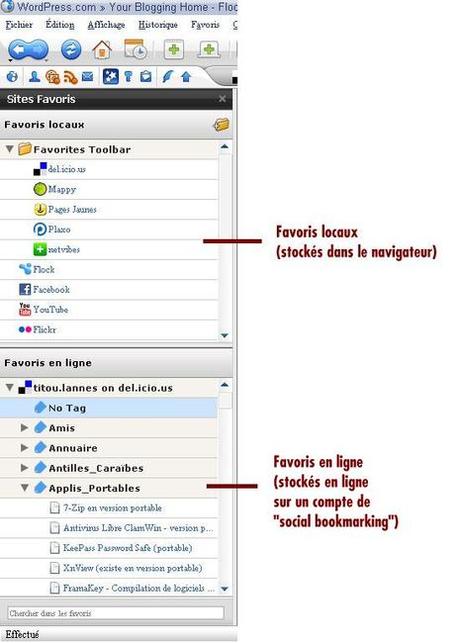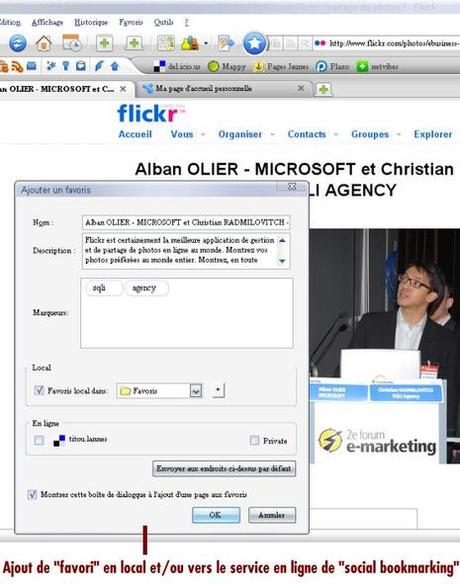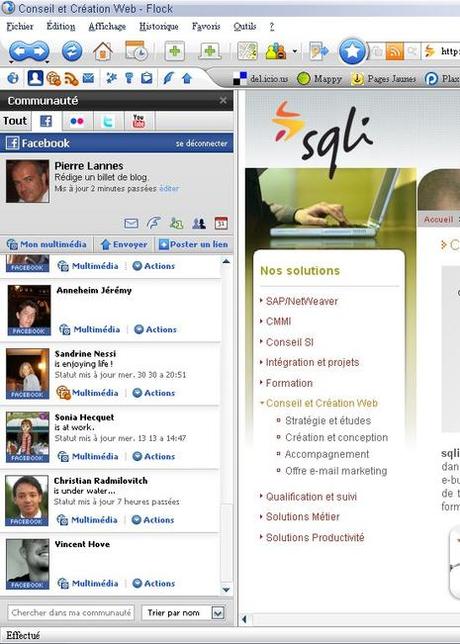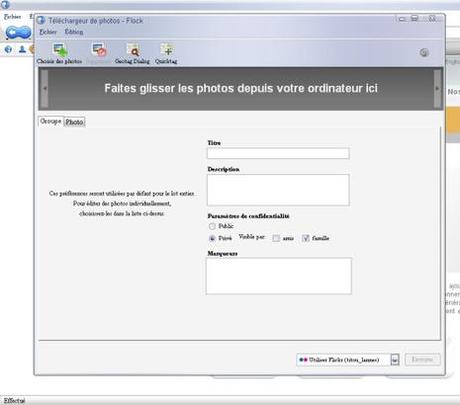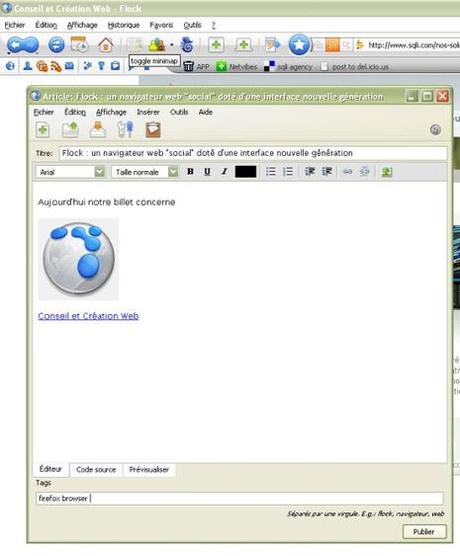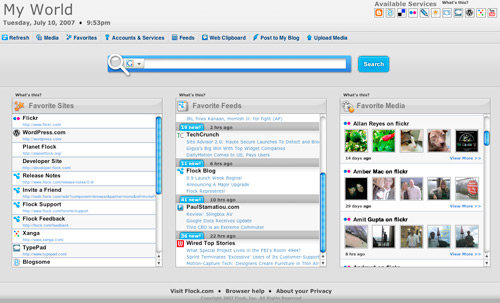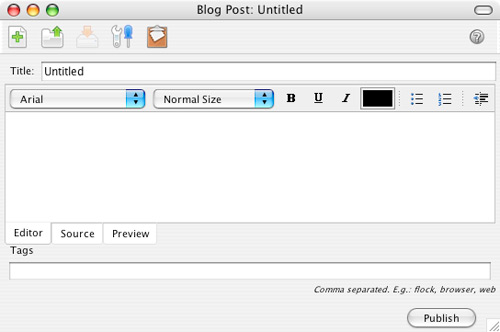Peter “peterme” Merholz coined the term “blog” as a playful contraction of “web-log” — like a ship’s log in which hardy adventurers upon the chaotic virtual seas could record their journeys.
- Nov 2024
-
-
- Mar 2024
-
informatykzakladowy.pl informatykzakladowy.pl
-
Sekurak – 4373 Niebezpiecznik – 4171 Z3S – 3383
Comparison of the frequency of posting by the most popular polish cybersecurity blogs: 1. Sekurak 2. Niebezpiecznik 3. Z3S
-
- Nov 2023
-
thebookring.neocities.org thebookring.neocities.org
-
https://thebookring.neocities.org/
via https://mastodon.social/@TheCozyCat@bookstodon.com/111395422092776577
Tags
Annotators
URL
-
- Oct 2023
- Sep 2023
-
-
When news broke out about Bill Cosby, folks had, and still have, a hard time dissociating his “America’s Dad” and TV persona who was like a father figure and his philanthropy work from the man who “used his enormous power, fame, and prestige” to sexually assault women
Maybe this is chance to finish 2020 blog post about the complicated nature of shifting our engagements with 2D personalities to 3D people... The questions proposed at the end are helpful in deliberate consideration (vs absolutist takes)
-
- Aug 2023
-
developers.google.com developers.google.com
Tags
Annotators
URL
-
- Nov 2022
-
simonwillison.net simonwillison.net
-
Mastodon is just blogs
"Mastodon is just blogs and Google Reader, skinned to look like Twitter." That is pretty accurate, microblogging and following does what feedreading does too. In this case commenting is put at the exact same level as the orginal blogpost, akin to how I can reply to posts with a post of my own (like old trackbacks, now webmention)
-
-
developer.wordpress.org developer.wordpress.org
Tags
Annotators
URL
-
- Sep 2022
-
www.jessestommel.com www.jessestommel.com
-
What kind of assessment approach does our current moment warrant?
Good question.
-
- Aug 2022
-
codex.wordpress.org codex.wordpress.org
Tags
Annotators
URL
-
-
www.paperblog.fr www.paperblog.fr
-
paulstamatiou.com paulstamatiou.com
-
Integrated Blogging


Del.icio.us Integration

Flickr Integration

-
-
paulstamatiou.com paulstamatiou.com
- Jun 2022
-
Local file Local file
-
If you want to write a book, you could dial down the scope andwrite a series of online articles outlining your main ideas. If youdon’t have time for that, you could dial it down even further andstart with a social media post explaining the essence of yourmessage.
This does make me wonder again, how much of this particular book might be found in various forms on Forte's website, much of which is behind a paywall at $10 a month or $100 a year?
It's become more common in the past decades for writers to turn their blogs into books and then use their platform to sell those books.
Tags
Annotators
-
-
www.smbc-comics.com www.smbc-comics.com
-
Thanks to everyone who wrote to say they enjoyed the blogs. I had thought social media killed blogging, but a few of you seem to be here in the afterlife. Isn't it strange how a blog without comments is so much more intimate than social media? I think the key is that blogs are like letters, and letters are the most intimate human experience that doesn't involve touching someone's butt. Come to think of it, they may be more intimate now than in their heyday because only a few of you will even bother to read.
For the folks who still like to blog or read blogs.
Tags
Annotators
URL
-
-
developers.google.com developers.google.com
Tags
Annotators
URL
-
-
blogger-developers.googleblog.com blogger-developers.googleblog.com
- May 2022
-
wordpress.org wordpress.org
-
movabletype.org movabletype.org
- Apr 2022
-
intothebook.net intothebook.net
-
To read through my life, even as an incomplete picture, fits the permanence I’m envisioning for the site.
If one thinks of a personal website as a performance, what is really being performed by the author?
Links and cross links, well done, within a website can provide a garden of forking paths by which a particular reader might explore a blog despite the fact that there is often a chronological time order imposed upon it.
Link this to the idea of using a zettelkasten as a biography of a writer, but one with thousands of crisscrossing links.
-
- Feb 2022
-
brainbaking.com brainbaking.com
-
https://brainbaking.com/post/2021/10/are-digital-gardens-blogs/
We definitely need better definitions of digital gardens (public or otherwise) to delineate them from blogs, zettelkasten, wikis, social media, and other forms of information exchange.
Wouter Groeneveld describes some of his thoughts here.
Link to notes from https://collect.readwriterespond.com/are-digital-gardens-blogs/
-
Public digital gardens are overrated. They are very hard to navigate. Time and time again, I get lost in the jungle of mystical links, in the check-ins drowned in the bookmarks and the quotes. Fancy IndieWeb sites that boast 5 separate RSS feeds to “help” navigate the labyrinth do not make it better. I’ve tried following multiple interesting people that pump loads and loads of seemingly cool looking stuff into their site. It always ends in confusion. Yes, sometimes I discover a link to another published article (external to the garden, by the way!) that is interesting. As admiring as the garden is, the things they grow there are almost always puzzling.
Wouter Groeneveld here is mixing up a digital garden and a blog with social media enhancements. I personally wouldn't expect a digital garden to necessarily have features like checkins, bookmarks, etc. Ideally it would be a mix of of a zettelkasten with atomic ideas and notes and a wiki structure with somewhat longer articles and ideas strung together.
From this definition, my personal website definitely isn't a "digital garden" but a blog with a variety of social media features built in. Looking at some smaller subsets of my website, one might consider it to be a digital garden.
An additional piece of digital gardening also has to do with actually tending the garden, which I generally don't do in my website the way I do in my Obsidian vault. My vault is more like a digital garden which has many streams of data coming into it and being regularly tended.
This is another example of the broader space of these ideas being mixed together in a hodgepodge without clear definitions of what each are.
-
- Nov 2021
-
www.lynnekelly.com.au www.lynnekelly.com.au
-
I am going to rework my website to an information site rather than blog, and include all the new stuff I am doing including the languages, archaeology, applications to education and a very recent approach linking the mnemonic technologies to human evolutionary genetics.
Perhaps a wiki (single or multiple user) would be a better tool for this?
Tags
Annotators
URL
-
- Oct 2020
-
elearnmag.acm.org elearnmag.acm.org
-
then
Yes, I'm selecting this topic seeking perspective. Discussions in an online course is a manner of interacting with peers. Will ponder how I can use this in my paper.
Tags
Annotators
URL
-
-
lordofthemoon.com lordofthemoon.com
-
Although I’ve already got a blog (you’re reading it!), I decided not to mirror my book reviews here. I post normal content so infrequently that anyone who wanted to read the blog but wasn’t interested in book reviews would be inundated with content they didn’t want. In the end, I spun up an additional WordPress instance on my web space (something that my host, Krystal Hosting, makes very easy to do) to keep the reviews completely isolated from everything else.
This seems to be a frequent excuse for people to spin up yet another website rather than attempting to tackle the UI subscription problem.
Social readers would be well advised to think about this problem so people could have a single website with multiple types/kinds of content.
Platforms should better delineate how to allow publishers and readers to more easily extract the posts that they're interested in following.
-
-
hapgood.us hapgood.us
-
There’s also the fact that wikis are used to store information that can be edited at a later time by a third party, which is something that blogs cannot do.
Perhaps this is a part of where the definition changes for me to blur the difference between the two modalities (wikis vs. blogs). If a wiki is held as public, yet still personal and any changes to it are done by a fork and edit by a third party with a webmention back to the original, then the barrier can be removed. If one can use a webmention notification from the branch back to the original so that the new knowledge can either be aggregated or not at the first party's discretion. This allows the ideas and potentially growing voice of atomicules of information to grow and spread.
This gives a bit of the best of the both worlds. There can be multiple minds and models working, but the information can still be shared and aggregated over time. This may also expand creativity as there isn't necessarily one canonical source, but many.
Thus a personal wiki and blog combination can use small atoms of information in a wiki-like style to slowly build up a set of facts where a longer blog-like article then becomes a crystallization of a specific voice's synthesis and analysis of those underlying facts.
If the wiki chunks are copyable and sharable then different people may synthesize different ideas. Additionally by reshuffling the various pieces, the author of a particular blog article may rewrite or revise their original thinking with additional smaller wiki-like pieces to come to an alternate or expanded conclusion.
Thinking of a wiki as something that has to be voiceless and communal may be the biggest wall between the two modalities. If there were a larger community of personal wikis that were interlinked then these barriers might be broken down.
Additionally, this is more like what the OER community may be looking for. There are very concrete topics like calculus, as an example, but there can certainly be dozens of approaches to the topic in as many or more voices to suit the needs of particular learners. In fact there are many calculus textbooks geared toward different audiences: biologists, physicists, economists, mathematicians, social sciences, etc. The underlying ideas may all be incredibly similar but could be remixed in different and creative ways.
-
These are just two of many things that come up, and I don’t really have a great answer to these questions. In most cases I’d say it makes sense for these to remain two conceptually distinct projects, except for the big looming issue which is with the open web shrinking it might helpful for these communities to join common cause and solve some of the problems that have plagued both blogging and wiki in their attempt to compete with proprietary platforms.
-
Should Wikity follow the wiki tradition of supplying editable source to collaborators? Or the web syndication model of supplying encoded content. (Here, actually, I come down rather firmly on the source side of the equation — encoded content is a model suited for readers, not co-authors).
What does he mean by "encoded" content? and why is it a problem?
-
-
nesslabs.com nesslabs.com
-
What’s the difference between a digital garden, a note-taking app, and a blog? You can see the digital garden sitting between the former and the latter. It’s a place to share your evergreen notes—not raw notes you may have stored in your note-taking app, but not quite the level of polish you would expect on a blog. Creating a digital garden is a great way to receive early feedback on your ideas. Over time, several posts in your digital garden may be combined to create longer essays to post on your blog, but it won’t necessarily be the case.
Anne-Laure defines a third "thing" known as a digital garden sitting in between a private note-taking/thinking tool and a blog. She calls it here a digital garden.
The idea is interesting, but requires some additional work to create the third thing, which is okay for those who'd want it.
In some sense, I'm more likely to create just a single thing that does all three functionalities and not worry too much about the public/private portions. I'm not opposed to maintaining all three, though it will require a tool that has the pre-built UI to make maintaining them all simple. Otherwise, I'm not sure the manual work would work for me.
Tags
Annotators
URL
-
- Apr 2020
-
blog.cjeller.site blog.cjeller.site
-
Why not have blogs take better advantage of the ways we already interact?
I think it's largely because blogging has been left behind as a social tool of the early web. I think the average web user perceives blogging in a sort of negative light as an old technology, but I think we're about to have (or perhaps already are having) a second blogging renaissance in reaction to the pitfalls of microblogging.
-
- Nov 2019
-
teachonline.asu.edu teachonline.asu.edu
-
Integrating Technology with Bloom’s Taxonomy
This article was published by a team member of the ASU Online Instructional Design and New Media (IDNM) team at Arizona State University. This team shares instructional design methods and resources on the TeachOnline site for online learning. "Integrating Technology with Bloom's Taxonomy" describes practices for implementing 6 principles of Bloom's Digital Taxonomy in online learning. These principles include Creating, Evaluating, Analyzing, Applying, Understanding, and Remembering. The purpose of implementing this model is to create more meaningful and effective experiences for online learners. The author guides instructors in the selection of digital tools that drive higher-order thinking, active engagmenent, and relevancy. Rating 9/10
-
-
www.opm.gov www.opm.gov
-
Training and Development Policy Wiki
This webpage, under the Office of Personnel Management (OPM) .gov site, provides an extensive list of technology resources that can be and have been implemented into a variety of employee deveolpment programs. These tools allow for more personalized learning, active participation, collaboration, and communication.In the first section of the site, examples of Web 2.0 tools are listed that can promote collaboration and constructive learning. You can also find technologies that are used in specific sectors, such as the Federal Government and the Private Sector. Clicking on the links redirects you to additional resources on the tech tools, including how to use them effectively and professionally for employee training. Rating 10/10
-
-
-
Using Technology to Enhance Teaching & Learning
This website provides technology teaching resources as part of the Southern Methodist University (SMU) Center for Teaching Excellence. Users can find informational links to various technology tools that can be used for enhancing teaching and learning in online, hybrid, or face-to-face courses. On the right of the page under "Technology," users can click on the tech tools for additional resources/research on their implementation. Examples of these technologies include Blackboard LMS, PowerPoint presentation software, Google Suite products, blogs, and social media sites. Rating 8/10
-
- Mar 2019
-
citeseerx.ist.psu.edu citeseerx.ist.psu.edu
-
informal learning with mobile devices - microblogging as learning resource This article uses the work of Schon, a theorist on learning and reflection whose work is often used to address workplace learning. The paper is on topic, relating to informal learning with mobile devices, but it focuses on high school students--which seems to be a rather unusual use of Schon's writing. Also the writing itself is both general and dated. There is a 2x2 that describes the relationship of formal and informal learning to intentional and unintentional learning as well as the use of devices. rating 1/5
-
- Aug 2018
-
www.patreon.com www.patreon.com
-
in the forum, we talk about what we decide to talk about, but in the blog, each student can talk about whatever he or she individually wants to talk about.
This is really worth thinking about. Which virtual spaces are "my space" and which are "our space?" How do they relate and affect group dialogue and individual learning?
I wish I had a better sense how a multiauthor "class blog" fits into this framework.
Tags
Annotators
URL
-
- Jul 2018
-
er.educause.edu er.educause.edu
-
What has changed, what remains the same, and what general patterns can be discerned from the past twenty years in the fast-changing field of edtech?
Join me in annotating @mweller's thoughtful exercise at thinking through the last 20 years of edtech. Given Martin's acknowledgements of the caveats of such an exercise, how can we augment this list to tell an even richer story?
-
- May 2018
-
www.publishingtrends.com www.publishingtrends.com
Tags
Annotators
URL
-
- Mar 2018
-
ryancordell.org ryancordell.org
-
DH is collaborative rather than solitary
"DH is collaborative"... I would have to agree. When I think of digital humanities, I think of communicating and interacting with others across a variety of digital platforms. For example, in the digital humanities course that I took this term, we interacted on a digital platform through blogs with our peers and classmates. It was a really interesting and engaging way to interact with one another because it allowed everyone to speak up and have a voice of their own which is super unique for a college course.
-
- May 2017
-
casmls.github.io casmls.github.io
-
The Talking Machines Podcast by Katherine Gorman and Ryan Adams The Spectator by Shakir Mohamed Andrew Gelman’s Blog Christian Robert’s Blog OpenAI Blog Andrej Karpathy’s Blog Dustin Tran’s Blog Alex Smola’s Blog Radford Neal’s Blog Hal Daume III’s NLP Blog inFERENCe
Solid set of machine learning blogs
-
- Apr 2017
-
mopinion.com mopinion.com
-
Hypothesis is a lightweight option for adding website annotation with the aim of bringing “a new layer to the web”.
-
- Sep 2016
-
ds106.us ds106.us
-
he personal sense asso-ciated with diaries also enabled “blogger” to emerge as a category, even a professional identity, letting us think of blogs as character vehicles.
In high school I was an avid reader of a few lifestyle blogs and over time the bloggers would follow me back after gaining a relationship through comments and still follow each other today
-
- Jan 2016
-
wiobyrne.com wiobyrne.com
-
In my experience, email becomes a pit where ideas go off to die.
Well...applies to blogs as well even when in a fishbowl. Readers are not codeswitching carefully and intentionally.
-
The #WalkMyWorld Project is an open education, open publishing, and open research initiative. In it we develop and facilitate a mentored, open, online learning community in which educators and their students use social media (e.g. Twitter) to connect and share.
walkmyworld defined
-
A fishbowl discussion is a participatory form of dialogue that allows the entire group to participate in a conversation.
fishbowl defined
-
In this post I discuss the possibilities for using your personal blogs, and Medium to create a fishbowl discussion for use in project and research planning
Purpose of post
-
- Oct 2015
-
dtc-wsuv.org dtc-wsuv.org
-
Put simply, Electronic Literature is considered a "born digital" art form with unique approaches to thinking about and working with digital technologies for the purpose of creating literary art.
So, how would it be considered if I for example use pencil and paper to write down poetry or anything and then I type my diary entries into an electronic device for it to be displayed in digital platform such as a blog? Is it considered to be "born" on paper? Or is it considered to be "e-lit" because despite of the paper based start, it was thought to be published in a digital media?
-
